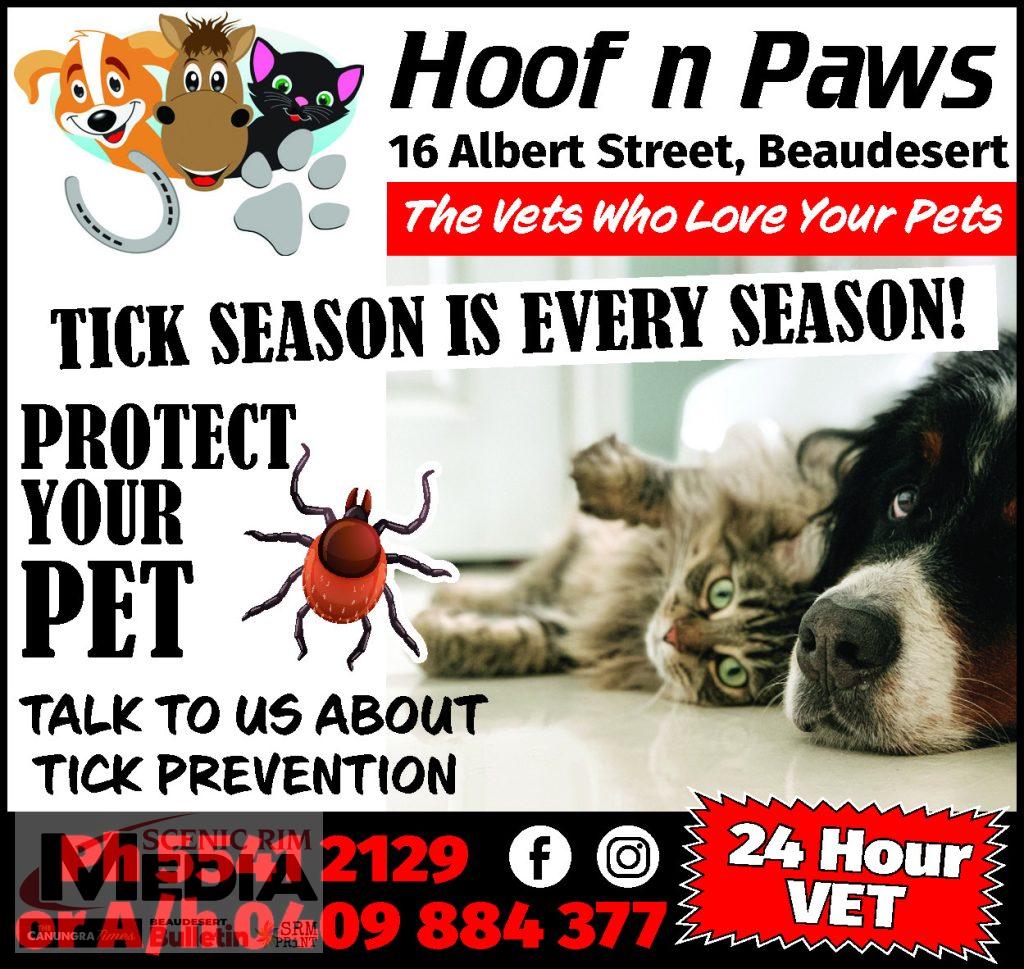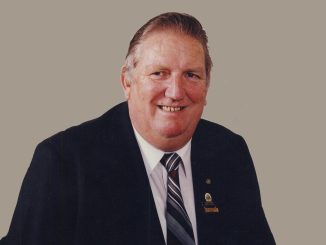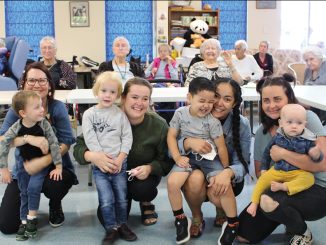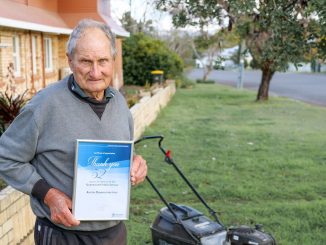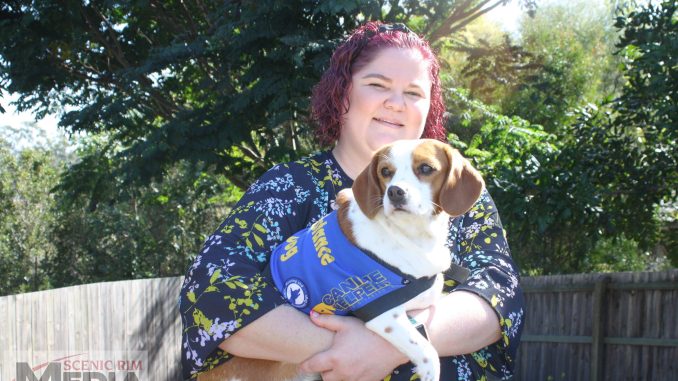
Shylah Sawtell’s Beagle-King Charles Cavalier cross, Harper, is a happy go lucky dog with a big job.
Two year old Harper is an assistance dog.
She helps Shylah with her physical and mental health and has been specifically trained to assist with everyday events that are challenging for Shylah.
Harper’s training began with general obedience training as a puppy but she has gone beyond this, learning to pick up Shylah’s keys if she drops them and picking up on emotional cues.
“She will notice when I’m feeling overwhelmed with high anxiety and her way of letting me know is to run into me.”
“If we are out in public she will walk in front of me to let me know it’s time to stop or move myself away from where I am, then I will sit and pat her which helps me to calm down.”
During these episodes Shylah is sometimes unable to realise what is happening so having a dog who can communicate this has made a huge difference to her life.
When Shylah and Harper are out and about, it is best to ignore the dog and not to ask to pat her.
“She is dog on duty when she’s out and she knows that it’s her job to look after me.”
“The no patting scenario is so that she is not put off doing the job that she is there for.”
Shylah has created cards which explain why she has Harper and a little bit about her breed and purpose.
“I feel uncomfortable talking to strangers about it but people do stop and ask me about her, so it is easier to give them these cards.”
Dog Trainer Sharon Bamford of Canine Helpers for the Disabled assisted Shylah and Harper with the Assistance Dog certification training that Harper needed.
There is an application process for Assistance Dogs which has to be accompanied by a medical professional’s letter, stating the dog owner requires an assistance dog to better function in the community.
Sharon says she assesses the dog and owner prior to commencing training, which can take six months or more.
“We need to ensure the dog has good obedience and is in tune with the owner, so it can do its job properly,” she said.
The rights of a person with an Assistance Dog are protected under Federal Law through the Disability Discrimination Act 1992 (DDA 1992).
The DDA allows qualified Assistance Dogs to accompany their handler into all public spaces with the exceptions of specific clinical settings, surgically sterilised areas, industrial food preparation areas (kitchens) and quarantined areas.
